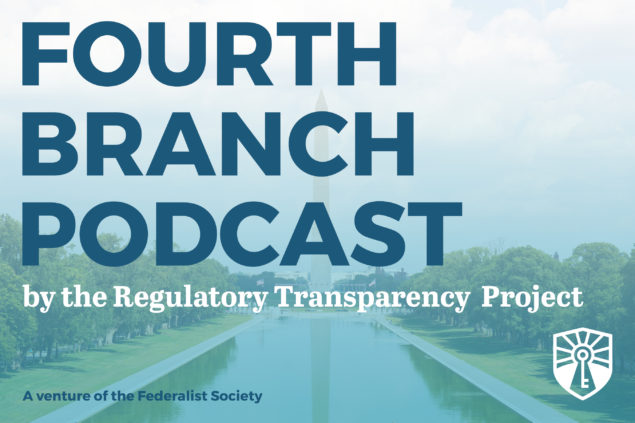Justin “Gus” Hurwitz
Professor of Law and the Menard Director of the Nebraska Governance and Technology Center
University of Nebraska College of Law
Justin “Gus” Hurwitz
Professor of Law and the Menard Director of the Nebraska Governance and Technology Center
University of Nebraska College of Law
Professor Justin (Gus) Hurwitz work’s builds on his background in law, technology, and economics to consider the interface between law and technology and the role of regulation in high-tech industries. He has a particular expertise in telecommunications law and technology, including data- and cybersecurity, and was recognized as a Cyber Security & Data Privacy Trailblazer by the National Law Journal. His work has appeared in the Brooklyn, Connecticut, DePaul, George Mason, Iowa, Michigan State, Pennsylvania, Pittsburgh, and other law reviews and journals.
He is the The Menard Director of the Nebraska Governance and Technology Center. Since joining the College of Law Faculty, his work has been cited by the FCC, FTC, Federal District and Circuit judges, and United States Senators, and he has spoken or testified before the Senate Commerce Committee, FCC and FTC, the United States Army’s 7th Signal Command, and German and Colombian competition regulators.
He is also the Director for Law and Economics Programing with the International Center for Law & Economics (ICLE), a think tank based in Portland, Oregon, where he directs a new law and economics-focused research program and helps to translate academic research into applied policy issues. He also is, or has been, affiliated with the Classical Liberal Institute at New York University School of Law, the National Security Institute at George Mason University, and the American Enterprise Institute.
Professor Hurwitz previously was the inaugural Research Fellow at the University of Pennsylvania Law School’s Center for Technology, Innovation and Competition (CTIC), prior to which he was a Visiting Assistant Professor at George Mason University Law School. From 2007–2010 he was a Trial Attorney with the United States Department of Justice Antitrust Division in the Telecommunications and Media Enforcement Section.
Professor Hurwitz has a background in technology having worked at Los Alamos National Lab and interned at the Naval Research Lab prior to law school. During this time his work was recognized by organizations such as the Federal Laboratory Consortium, R&D Magazine, Los Alamos National Lab, IEEE & ACM, and the Corporation for Education Network Initiatives in California. In addition, he held an Internet2 Land Speed World Record with the Guinness Book of World Records.
Professor Hurwitz received his JD from the University of Chicago Law School, where he was an articles editor on the Chicago Journal of International Law and received Olin and MVP2 law and economics scholarships. He also holds an MA in Economics from George Mason University. He received his BA from St. John’s College.
A person listed as a contributor has spoken or otherwise participated in Regulatory Transparency Project events, publications, or multimedia presentations. A person's appearance on the website does not imply an endorsement or relationship between the person and the Regulatory Transparency Project. The Regulatory Transparency Project takes no position on particular legal or public policy issues. All expressions of opinion by a contributor are those of the contributor.
Contributions
Deep Dive Episode 254 – The Implications of the FTC’s Proposed Ban on Noncompete Agreements
In January 2023, the FTC announced a proposed rule that would ban noncompete agreements across most of the U.S. economy – a move President Biden lauded in his recent State of the Union address.
Listen to this podcastThe Implications of the FTC’s Proposed Ban on Noncompete Agreements
In January 2023, the FTC announced a proposed rule that would ban noncompete agreements across most of the U.S. economy – a move President Biden lauded in his recent State of the Union address.
Watch this videoDeep Dive Episode 41 – General Data Protection Regime & California Consumer Privacy Act
In this episode, Anna Hsia, Chris Riley, Gus Hurwitz, Thomas Hazlett, and Matthew R.A. Heiman discuss the implications of internet privacy legislation on innovation, small businesses, and consumer protection.
Listen to this podcastPepperdine Law Review’s 2019 Symposium: General Data Protection & California Consumer Privacy Act
Today’s regulatory landscape presents challenges for public and private entities. Private actors are often faced with conflicting, ambiguous, or altogether absent regulatory frameworks. Is it possible for them to overcome these challenges while delivering the creativity and innovation the marketplace demands? How can government regulators and legislators avoid stifling opportunity, function more efficiently, and enact and enforce sensible and effective regulatory schemes?
Pepperdine Law Review’s 2019 Symposium, in partnership with the Regulatory Transparency Project, explored these vital questions from both the academic and practical perspectives. The first panel of the symposium focused on the General Data Protection and California Consumer Privacy Act.
Watch this videoDeep Dive Episode 35 – Examining the California Consumer Privacy Act
Justin “Gus” Hurwitz (University of Nebraska College of Law), Eric Goldman (Santa Clara University School of Law), and Lindsey L. Tonsager (Covington & Burling) discuss the substance of the California Consumer Privacy Act (including recent amendments), the process that led to its enactment, and how it is likely to affect future privacy regulation in the United States.
Listen to this podcastDeep Dive Episode 34 – Net Neutrality and Federalism
Justin “Gus” Hurwitz (University of Nebraska College of Law), Brent Skorup (Mercatus Center), and Geoffrey A. Manne (International Center for Law & Economics) discuss questions surrounding recent state efforts to enforce net neutrality principles after the FCC’s decision in 2017 to eliminate common carrier regulations.
Listen to this podcast2018 JLEP Symposium: 21st Century Business Models Meet 20th Century Regulation
Government regulation is intended to improve the efficiency of markets and protect people from harms they cannot identify or prevent on their own. But, for decades, advocates have debated whether the regulatory process and rules developed through it are too strict or too lax; whether they properly account for all the things society values; and even whether they make society better or worse off on balance. The Journal of Law, Economics & Policy’s Symposium on Regulatory Reform, Transparency, and the Economy explored these and related questions as leading scholars and practitioners examined a number of recent regulatory proposals impacting a broad swath of the American economy – from banking and finance to energy and the environment, and from employment law to the internet economy. Speakers considered and debated how well these proposals would perform their intended functions and how they might be improved.
The symposium featured discussions of research papers prepared by experts working on the Federalist Society’s Regulatory Transparency Project. The proceedings of the Conference were published in a special symposium issue of George Mason’s Journal of Law, Economics & Policy.
Watch this videoDeep Dive Episode 5 – LabMD v. FTC: A David Against Goliath Story
Justin “Gus” Hurwitz (Nebraska College of Law) and Michael Daugherty (LabMD) discuss Michael’s experience defending his medical testing lab against allegations by the FTC that it had deficient cybersecurity practices.
Listen to this podcast




